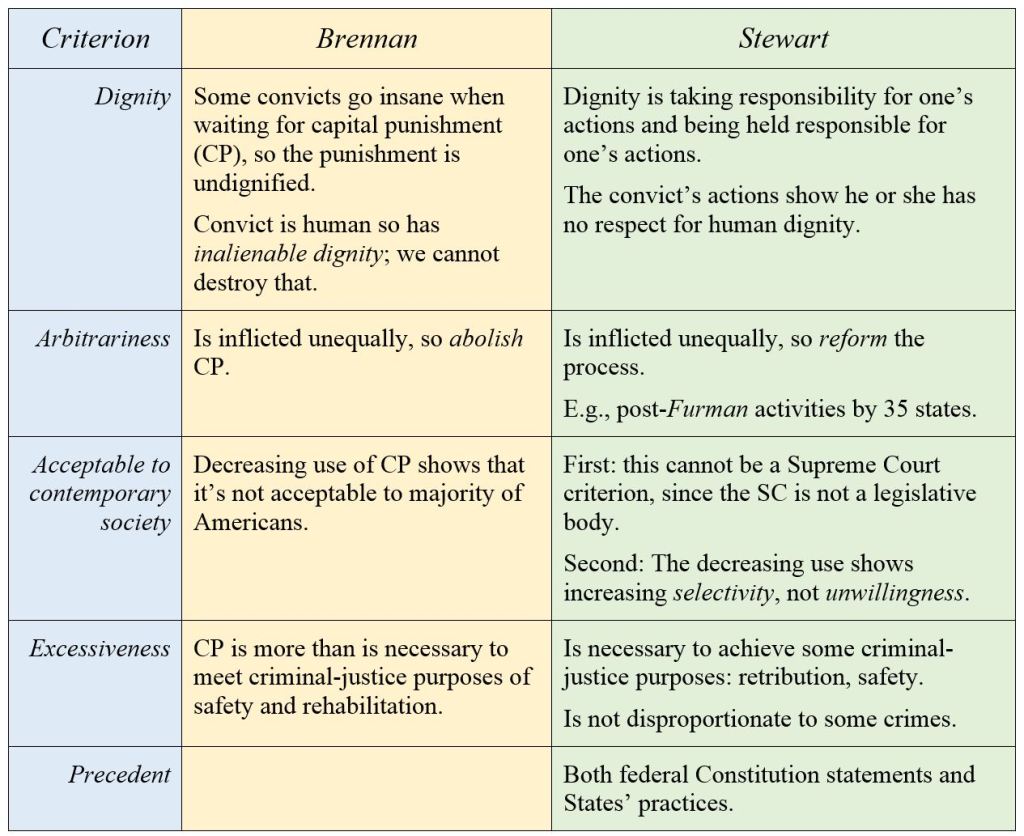This week in my Ethics course we are looking at two classic arguments about the penalty of death, both from U.S. Supreme Court cases: Justice Brennan, excerpt from Furman v. Georgia 408 U. S. 238 (1972), and Justice Stewart, excerpt from Gregg v. Georgia (1976).
Here’s my chart outlining the criteria and arguments used by Brennan in 1972 and, in response four years later, by Stewart:


It would be interesting to untangle the philosophical assumptions of each of these. For example, in the first criteria there are inherent assumptions about what “human” and “dignity” mean. The assumptions on dignity are addressed, but those on “human” remain unstated. This is no trivial issue. If we define the term biologically, Brennon’s line of reasoning obviously negates abortion, and could (if one stretches the concept to its utmost limits) forbid amputation, blood transfusions, and the like. If we define “human” as “rational animals”, as Aristotle did, we can state that those who take irrational actions are not, in fact, human–and therefore the question of human dignity does not arise.
To give another example, the inclusion of acceptability is rife with assumptions. Some things which are moral are considered reprehensible by most people–for example, capitalism. The very existence of this question on this list indicates that the compiler accepts, or (more likely) accepts that these two judges accept, the idea that morality is a social construct. It doesn’t prove it, of course, but it certainly warrants further examination. (Again, I’m not saying that the author accepts it–given the rest of Hicks’ writings I doubt he does–but it’s almost certain that at least one of these judges accepts the concept sufficiently to give it weight in considering the legitimacy of capital punishment.)